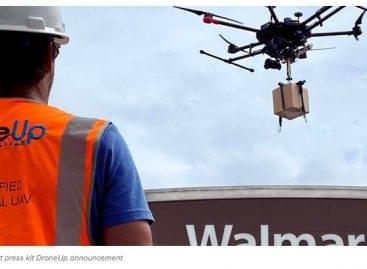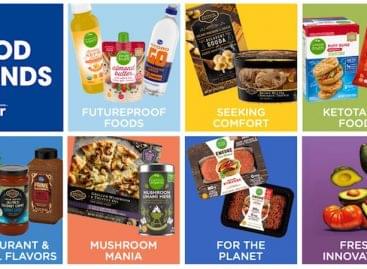Amazon is expanding with different storetypes
There is a fierce competition in the U.S. in grocery retail. The online giant is also claiming a place in the physical space, as it has opened Amazon Go and Go Grocery stores in addition to acquiring Whole Food. More and more Amazon-owned stores are appearing on the map in the U.S.
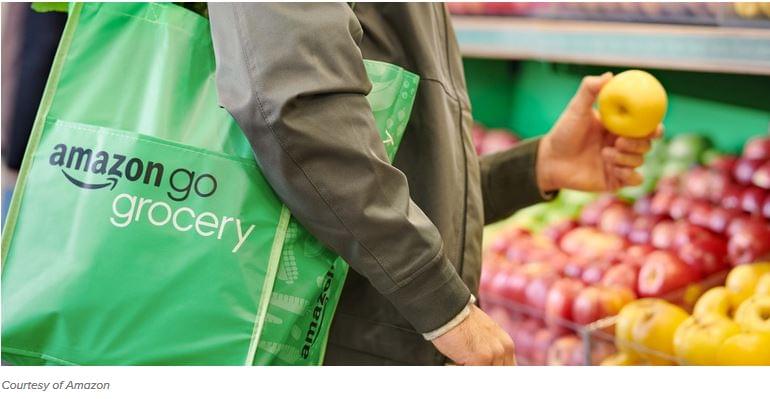
According to The Seattle Times analysis, Amazon is testing store formats that best meet consumer needs for different types of major metropolitan areas, from crowded city centers to suburbs, to increase its physical presence at the expense of market-leading Walmart and third-place Kroger.
Checkout-free automated stores
The Go Grocery concept is a larger version of the Go convenience stores it began testing publicly in late 2016 and which now number 26 locations in Seattle, New York, Chicago and San Francisco, though several are temporarily closed. The stores are equipped with cameras and other sensors that enable the company to bill shoppers through an app for items they pick off shelves, eliminating the need for a checkout line. At Amazon Go Grocery, shoppers will find everyday ingredients and essentials on their shopping list, along with ready-made meals to help make dinner tonight easier.
When a shopper arrives, she scans the QR code from the app at the gate to enter the store, then feel free to put her phone away. The checkout-free shopping experience is made possible by the same types of technologies used in self-driving cars: computer vision, sensor fusion, and deep learning. Just Walk Out Technology automatically detects when products are taken from or returned to the shelves and keeps track of them in a virtual cart. When a shopper has done shopping, she can just leave the store. Later, she will get a receipt and her Amazon account will be charged.
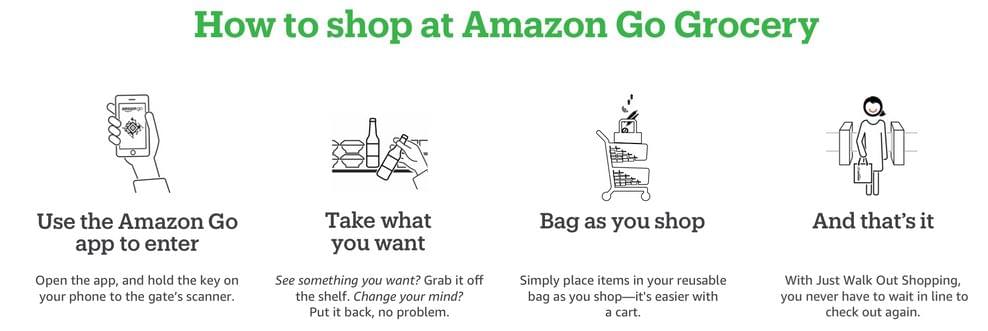
Amazon opened its first Go Grocery on Capitol Hill in Seattle this year. The second Go Grocery store is “coming soon” to what was formerly a Sears automotive building in Redmond, where it is also adding corporate offices.
Grocery unions have decried Amazon’s moves in the grocery business, citing the company’s pursuit of automation as a risk to grocery store jobs. To counter these criticisms, Amazon points to its hundreds of thousands of U.S. employees in warehouses, logistics networks and grocery stores — both automated and conventional.
Hybrid store solutions
Amazon also introduced a grocery store format with a conventional checkout — separate from the Whole Foods Market chain it acquired in 2017 — at a store in Woodland Hills, California, that opened early this year but was converted temporarily in March to fulfill online grocery orders only as the company struggled to catch up with a rapid increase in demand amid the growing coronavirus pandemic. A second store in Irvine, California, was similarly repurposed.
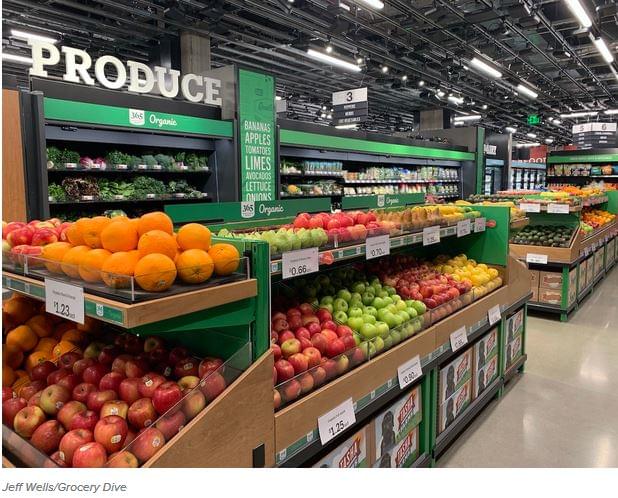
Related news
New plant-based store concept from Billa
Billa has developed a new store concept called Billa Pflanzilla,…
Read more >Walmart Invests in DroneUp
Walmart is making a strategic investment in drone services startup DroneUp after partnering…
Read more >Private label is growing dynamically in the U.S.
Because of Kroger quarter report private label in the U.S.…
Read more >Related news
Penny’s ‘Markthalle’ discount concept in Germany
Penny’s marketplace concept in Germany is an evolutionary step towards…
Read more >The majority of Hungarians spend less than 50 thousand forints on Christmas gifts, sustainability is an important aspect, but not the primary one
Gift-giving is an essential holiday tradition, but what really matters…
Read more >Rossmann ended the year with charity
This year, Rossmann Hungary also provided support to many needy…
Read more >

